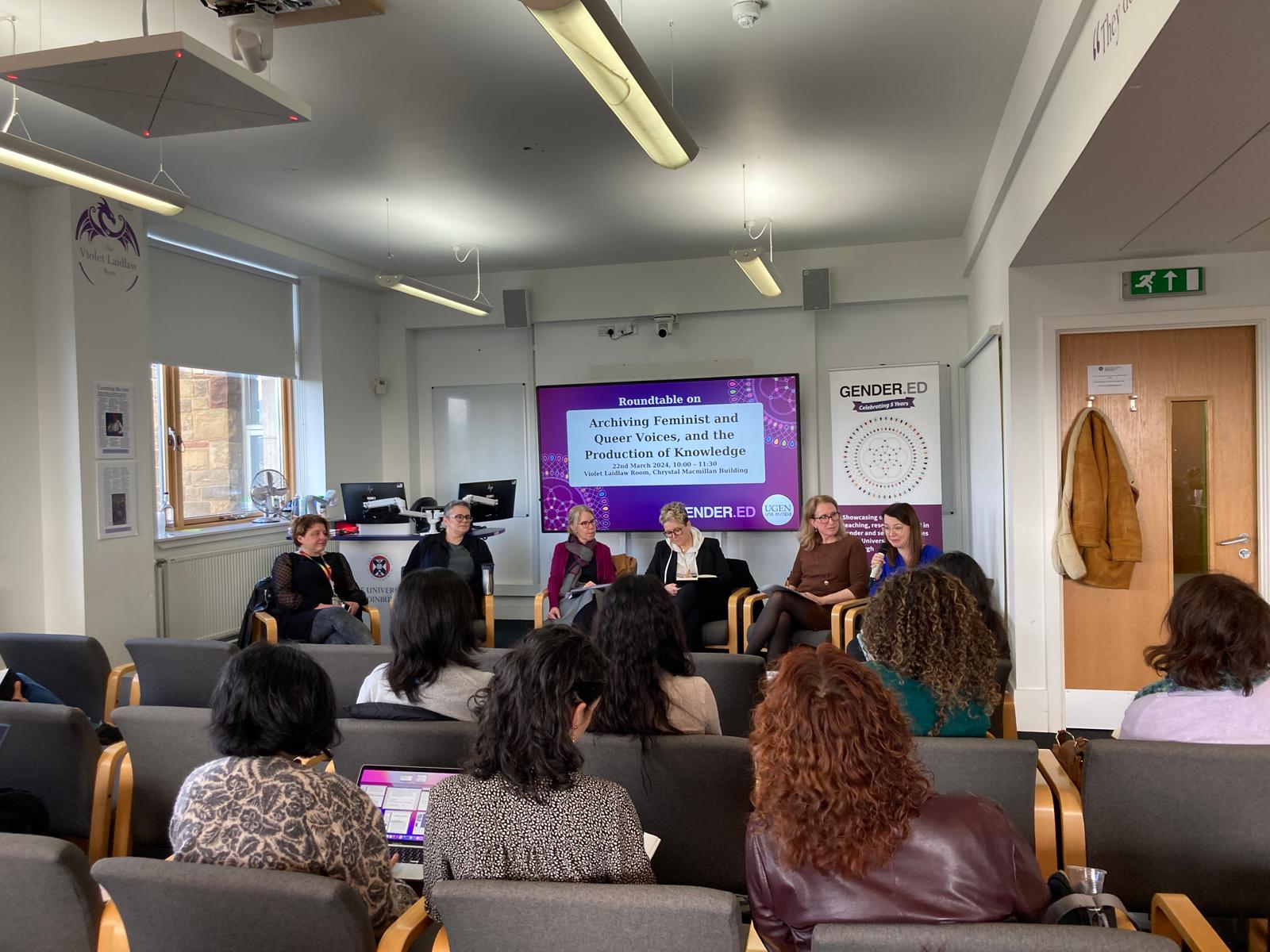Introducing the University Archives
This dossier on Archiving Feminist and Queer Voices, and the Production of Knowledge comprises a series of short posts from speakers at our roundtable on the topic convened during the visit we hosted for members of UGEN at this event.
By Rachel Hosker

Image: Roundtable speakers, image credit: Wanned Dupont
I'll kick off with a little bit of the work that we're doing here at the university, in the university archives to give a bit of flavour and background from an archivist perspective, I suppose.A number of years ago, we started to look at our practice; what were we doing in terms of describing the archives and how were they representing people? As a university that has been in existence from 1583— and think about how society has changed and how language has changed over that time—as well as being a global university and our research being global, we have things from all over the world, and we had to think of not only in terms of gender, but also in terms of culture and faith and representation and how what we have, is it being described accurately? Is it actually representative or is there bias? So, we started doing some work on gender bias, working with, PhD student, Lucy Havens. Our archivist to give up all of our catalogue data to say to Lucy “analyse it and analyse it for bias in terms of gender” and Lucy's work – she got her PhD in December last year – is amazing work. It told us things that we suspected and that we knew, but also things that show where gender bias, as you know, infiltrates and surprises as we didn't expect. And it made our archivists, librarians, curators reflect back on that, the practice, how do we describe the things? How do we catalogue the things? What are the words and the language that that we use?
And then we've also done projects where we've looked at – where we've had people come and say, I can't find myself reflected in the archives. I can't see myself as an LGBTQ+ individual in the archives. So, we started looking at it from the School of Scottish Studies and the folk perspective and what – how do you navigate and research and find it's not an obvious search, you can't just Google and find it. You have to think about your terminology or how certain descriptions are masked through the language that's used by a community at a particular time. And more recently, we have been working with EUSA’S LGBTQ+ Liberation Officer Ash Scholz. Ash approached me – you can correct me if I misrepresent you –to say, you know, LGBTQ+ people have been here at the university for a very long time and probably before even there's an evidence base for that. Where is that evidence? Where are the stories where are the things that represents those people? They gathered together a group of volunteers and started to research in different aspects of the archives. So, EUSA’s own student magazine has been a great but also other university publications where staff and students debate what gender is as well. And that's an ongoing project that we hope to be able to give legs to through GENDER.ED and through the work that we do in the university archives. The team that I work with are very much supportive of working with staff and students to try and explore these things and see how we can change our practice, be reflective and think about how what change can we make in our sphere of influence, as it were, but also to make sure that we're not perpetuating past bad practice, or past poor language, or past poor representation as well. So that's a little bit of what I do and a brief introduction to the University archives as well!
Author Bio
Rachel Hosker is the University Archivist and Research Collections Manager. Rachel originally trained as an archivist, and now manages archivists, librarians and curators responsible for the University’s cultural heritage collections.